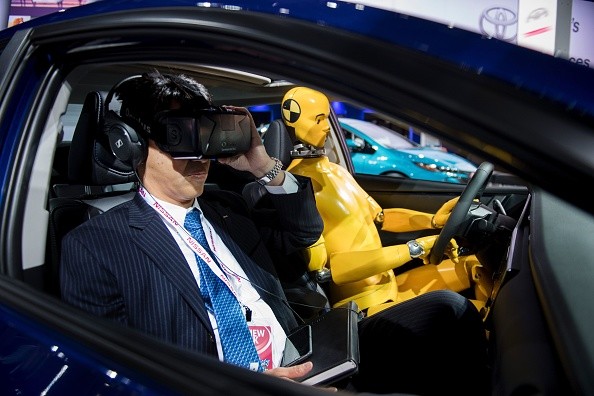Virtual reality has seen its popularity reach new heights over the last few years, with major tech brands such as Facebook, Sony, Google and Microsoft plunging into the craze. But like other technology trends, VR has yet to prove if it has the power to be in the game for the long haul.
In China, the boom in VR has prompted many manufacturers to shift their focus to products related to the technology, including headsets, accessories and VR simulators.
While there was demand and funding, problems started taking shape when Chinese regulators saw that listed companies whose major business were not related to VR presented a potential problem.
"To rein in fundraising tied to potential speculation, the China Securities Regulatory Commission (CSRC) in early 2016 ordered listed firms to stop selling stock specifically designed to raise capital for investments related to VR as well as internet finance, video games, films and television. The rule thus cut off an important funding channel for the emerging VR industry," detailed financial media group Caixin in a report.
Privately funded VR startups have also been hit by "a shortage of quality content, a lack of consumer-pleasing apps and technological limitations." These factors have prevented China's VR industry from expanding its user base and increasing revenue.
Investors, meanwhile, took a step back due to uncertainties in VR companies' ability to turn in profits. One of the Chinese manufacturers that has been hit by this is Beijing Alto Tech Co. Ltd, a supplier of augmented-reality glasses.
According to Caixin, the company ended its office lease in a posh building in Beijing and was forced to lay off some employees. The sudden downsizing was blamed on "a capital crunch more serious than anything the 3-year-old company had ever experienced," Alto's founder Ye Chenguang told Caixin in an interview.
Despite the challenges, the VR industry is not entirely headed for a downward spiral. In some areas, specifically content and apps, things are looking up. For example, Xiaomi's VR mobile app has outstripped sales of its VR glasses by nearly 50 percent. Industry experts say that China's VR space just needs a "phenomenally popular app" to ignite more demand.
Last year, Deloitte predicted that game sales will likely drive the revenue of VR content.
"Many of the apps created for smartphones are likely to be available for under $10 or free, with the latter serving primarily as marketing tools," the audit firm wrote.



























